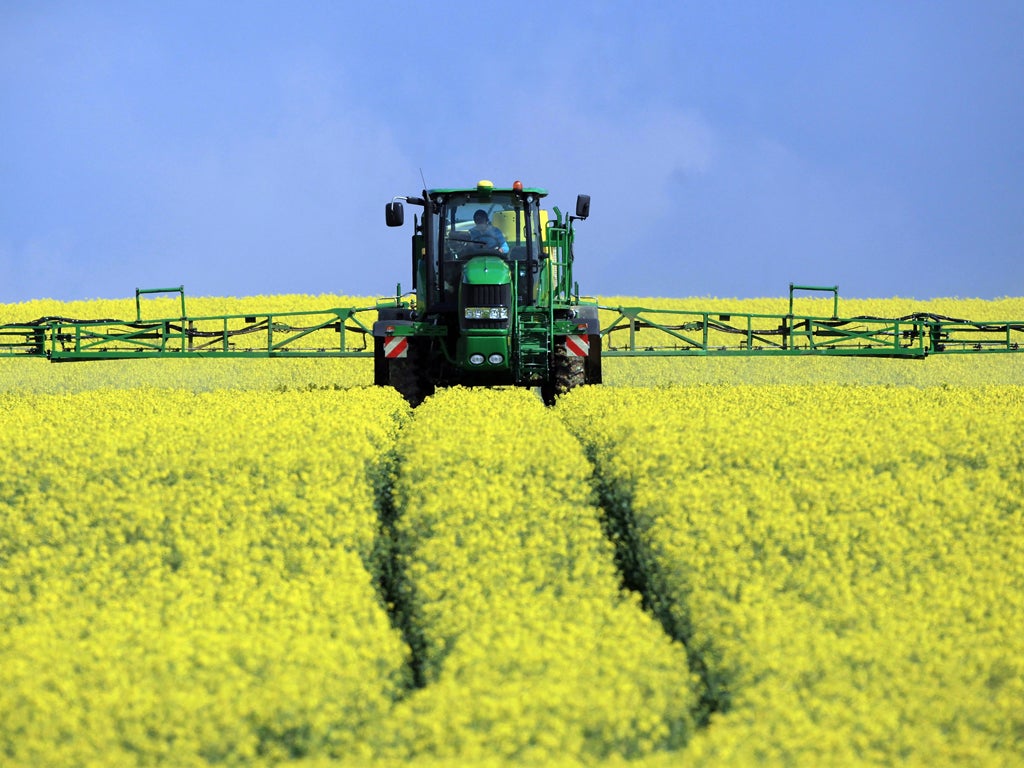The Coalition’s £235m wages are robbery down on the farm
Our diarist notes that the minimum wage is a recent innovation; notes the value of family connections ahead of award ceremonies; and offers a spinning corrective


Your support helps us to tell the story
From reproductive rights to climate change to Big Tech, The Independent is on the ground when the story is developing. Whether it's investigating the financials of Elon Musk's pro-Trump PAC or producing our latest documentary, 'The A Word', which shines a light on the American women fighting for reproductive rights, we know how important it is to parse out the facts from the messaging.
At such a critical moment in US history, we need reporters on the ground. Your donation allows us to keep sending journalists to speak to both sides of the story.
The Independent is trusted by Americans across the entire political spectrum. And unlike many other quality news outlets, we choose not to lock Americans out of our reporting and analysis with paywalls. We believe quality journalism should be available to everyone, paid for by those who can afford it.
Your support makes all the difference.We are so used to the national minimum wage by now that it is easy to forget that 15 years ago there was no legislation that set a floor on low wages, except in one industry. When John Major’s government abolished all other forms of minimum wage legislation in 1993, they toyed with the idea of scrapping the Agricultural Wages Board, which has protected farm workers from exploitation since 1948. That hit fierce opposition from Tory MPs with rural seats, such as Sir Patrick Cormack and Edward Garnier.
A consultation produced 3,555 responses against abolition to 11 in favour. The Agriculture minister, Gillian Shephard, decided to leave well alone. But where the last Conservative government feared to tread, the Coalition has moved in. The AWB is to be abolished on the grounds that it interferes in the free market and discourages farmers taking being hiring staff.
It is not being suggested that it an ineffective or expensive quango. Its disappearance will reduce administrative costs by a negligible £0.5m over 10 years. That is £50,000 a year.
What it will cost farm workers in lower wages is, on the other hand, spectacular – as illustrated in the Environment Department’s own “impact assessment” published this week. The Department’s “best estimate” is that, over 10 years, the cost in lost wages will be £235.7m and the overall gain will be £236.2m £0.5m gained by the taxpayer, the rest by farmers.
That is a hefty transfer of wealth from those who work on farms to those who own them. Labour’s Mary Creagh, the shadow Environment Secretary, calls it “a race to the bottom in pay in our towns and villages”.
Fabricant is the chief quip
David Cameron should never have let the ex-whip Michael Fabricant out of the whips’ office. Whips have to mind what they say.
Now that Fabricant is a vice-chairman of the Conservative Party, he has taken to entertaining Westminster with a string of Twitter messages, like this one yesterday: “I think I should make a personal statement to the House about my 35mph speeding penalty. I am guilty. I am a pleb.”
An in-house award for Spackman
Well done to the comment section of our rival paper, The Times, on securing a string of victories in the annual awards announced yesterday by the networking business, Editorial Intelligence. They won the Political Commentator, Sketch Commentator, Media Commentator and Commentariat of the Year awards, much to the credit of The Times Comment Editor, Anne Spackman. She is married to Charlie Burgess, formerly of this parish, who is a director of Editorial Intelligence, by the way.
Murdoch press in a spin over sexism
The Australian Prime Minister, Julia Gillard has become a star of the internet through her assault on the alleged sexism of the opposition leader, Tony Abbott, which has seriously annoyed commentators on Rupert Murdoch’s paper, The Australian, one of whom, Arthur Sinodinos, had this to say yesterday: “Labor’s decision to go negative on steroids is no accident… its high priest is the director of communications, the ex-Blair spinmeister John McTernan….’”
It is odd that McTernan is picking up this ferocious reputation in Oz, because he was never a “Blair spinmeister”, let alone a High Priest of Negativity on Steroids in the UK. He was a Blairite who worked for a time as a Downing Street adviser, and acted at different times as a spin doctor for some Cabinet ministers. He was never seen as a major practitioner of the dark arts.
He is not mentioned in the first 1,400 pages of Alastair Campbell’s diaries.
Join our commenting forum
Join thought-provoking conversations, follow other Independent readers and see their replies
Comments